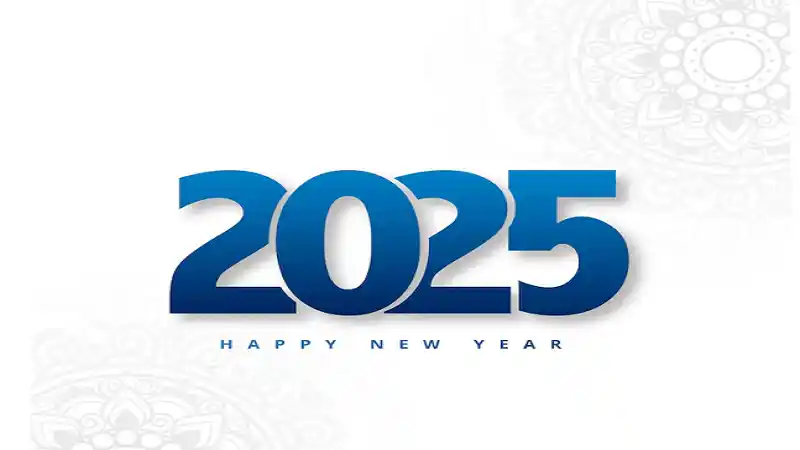In today’s fast-paced digital world, leaks and online information sharing have become hot topics, often sparking conversations, controversies, and questions. One term that has recently gained attention is “Jiniphee Leaks.” This phrase has quickly emerged as a key subject of interest, particularly in certain online communities. But what exactly are Jiniphee leaks, and why have they become so significant? In this article, we’ll dive deep into the topic, exploring the meaning of Jiniphee leaks, how they became prominent, their impact, and the broader implications they might have on digital privacy, content creation, and online security.
What Are Jiniphee Leaks?
The phrase “Jiniphee Leaks” refers to a specific type of data or media leak that has circulated across various online platforms, often related to private or exclusive content. While the exact details of Jiniphee leaks can vary, they typically involve the unauthorized release of sensitive information, images, videos, or files that were intended to be kept confidential or restricted to a select group.
These leaks are typically not just about information but also about control and access. When someone gains unauthorized access to these private files or media, they may leak it online, often without the consent of the individual or group responsible for its creation or storage. In many cases, these leaks involve celebrities, public figures, or high-profile influencers whose private data or content is exposed to the public without permission. While some leaks might be relatively harmless, others can have serious consequences for the individuals or organizations involved.
The Origin of Jiniphee Leaks
The term “Jiniphee” itself may not be immediately recognizable to the general public, as it refers to a specific online group or individual associated with the leaks. In some cases, the term may be used more as a catch-all reference for a particular type of online leak that has gained widespread attention due to its high-profile nature. It could be the username of a hacker, an alias used by an individual or group responsible for leaking private materials, or a reference to a specific event in the digital space.
In any case, the rise of Jiniphee leaks is closely tied to the increasing ability of individuals or organizations to access and share private data online. As technology continues to advance, so does the potential for data breaches, hacks, and unauthorized content sharing. In this environment, the Jiniphee leaks phenomenon emerged, gaining attention for the scale of the content shared, as well as the level of secrecy involved in its dissemination.
The Impact of Jiniphee Leaks
Jiniphee leaks are not just a passing trend; they have real consequences for those affected by them. The impact of these leaks can be profound, affecting individuals, businesses, and even entire industries. Here are a few key ways in which Jiniphee leaks have made their mark:
1. Privacy Concerns
One of the most significant impacts of Jiniphee leaks is the breach of privacy. When private content or sensitive information is leaked online, it can lead to severe consequences for the individuals involved. For celebrities, influencers, or public figures, the loss of control over their private lives can be especially damaging, as their personal details or images may be spread across social media, blogs, and other websites without their consent.
These leaks often happen due to hacking or other security breaches, and they highlight the vulnerabilities in digital security. While online privacy is a growing concern, leaks like these raise questions about how secure personal data truly is in today’s connected world.
2. Reputational Damage
For individuals who are the subject of Jiniphee leaks, the damage can be both personal and professional. In many cases, private information, images, or videos that are leaked can lead to significant reputational harm. This is particularly true if the leaked content is salacious or involves private moments that were never intended for public consumption.
For public figures, the damage can extend beyond their personal lives and affect their careers. A leaked scandal or compromising content can lead to public backlash, loss of endorsement deals, and a decline in their fan base. The long-term effects on their reputation and career can be irreversible, and often, the leaked content stays on the internet forever, making it hard to escape from.
3. Legal and Financial Consequences
In addition to the personal and reputational toll, Jiniphee leaks can also have serious legal and financial repercussions. In many cases, individuals or organizations whose content is leaked can take legal action to pursue justice and seek compensation. Depending on the severity of the leak, lawsuits may be filed against those responsible for the breach, as well as any third parties who shared or disseminated the leaked material.
For businesses, Jiniphee leaks can also result in financial losses, especially if sensitive corporate data, intellectual property, or confidential business strategies are exposed. If a company suffers a data breach, they may face lawsuits, loss of clients, or a drop in stock prices. Legal fees, reputational repair efforts, and compensatory payouts can quickly add up, making the financial consequences of such leaks devastating.
4. Security Vulnerabilities
Jiniphee leaks also shed light on security vulnerabilities in the digital world. Whether it’s weak passwords, poor encryption, or insecure platforms, the incidents surrounding these leaks show that there is still much to be done to ensure digital safety. As more individuals and organizations rely on online platforms to store and share sensitive content, the importance of cybersecurity becomes ever more apparent.
For those who are the victims of such leaks, the event serves as a wake-up call about the need for stronger security measures, such as multi-factor authentication, encrypted communications, and more secure methods for handling private data.
The Growing Trend of Leaks in the Digital Age
The Jiniphee leaks are part of a larger, growing trend of online leaks and information exposure. In an era where digital media is ubiquitous and everyone seems to have access to the internet, leaks are becoming more common. The advent of social media, anonymous forums, and digital communication platforms has created an environment in which leaks can spread faster than ever before.
The reasons behind the growing number of leaks are multifaceted. On one hand, some leaks are motivated by a desire for attention or to expose what some may perceive as wrongdoing or injustice. In other cases, leaks are driven by hackers or malicious actors seeking to profit from the sale of private data or to cause harm to a particular individual, business, or organization.
The speed at which information travels online is another factor contributing to the proliferation of leaks. Once leaked content is posted online, it can quickly be shared across a wide range of platforms, including social media, websites, and chat rooms. This rapid dissemination makes it challenging to contain the leak and remove the content before it spreads too far.
The Role of Social Media in Spreading Leaked Content
Social media platforms play a central role in the spread of Jiniphee leaks. With millions of users posting, sharing, and commenting on content daily, social media is often the first place where leaks go viral. A leaked photo or video can quickly make its way across multiple platforms, from Twitter to Reddit to Instagram, reaching a global audience within hours.
In addition to accelerating the spread of leaks, social media can also amplify the consequences. Users who come across leaked content may engage in online discussions, share their opinions, or repost the content without considering the ramifications. The viral nature of social media can result in a snowball effect, making it harder for individuals or organizations to regain control over the leaked material.
How to Protect Yourself from Leaks
Given the prevalence of Jiniphee leaks and similar incidents, it’s important to take steps to protect your personal and professional information. Here are a few strategies for safeguarding your data in the digital age:
- Use Strong, Unique Passwords: One of the easiest ways to protect your accounts from hacking is to use strong passwords. Avoid using simple or common phrases and instead create complex passwords that are hard to guess. Make sure each of your accounts has a unique password.
- Enable Two-Factor Authentication (2FA): Many online platforms offer two-factor authentication, which provides an added layer of security. This process requires you to verify your identity through a second method (like a text message or authentication app) in addition to your password.
- Avoid Sharing Sensitive Content Online: Be cautious about the content you share online, especially when it comes to private or sensitive information. If possible, keep personal data off social media or other public-facing platforms.
- Secure Your Devices: Make sure your devices, including your phone and computer, are equipped with up-to-date security software and firewalls. Keep your operating system updated to reduce vulnerabilities that could be exploited by hackers.
- Be Mindful of Phishing Attacks: Be wary of unsolicited emails or messages that ask for personal information or direct you to unfamiliar websites. Phishing attacks are often used to gain access to private data, and they can lead to data breaches or leaks.
Conclusion
Jiniphee leaks are just one example of a growing trend in digital breaches and online content sharing. As our world becomes increasingly connected, the risks associated with data leaks and unauthorized content exposure continue to grow. Whether it’s the breach of personal privacy, reputational damage, or security vulnerabilities, leaks like these remind us of the importance of protecting our information and being vigilant in the digital landscape.
By understanding the implications of Jiniphee leaks and taking proactive steps to safeguard our data, we can better navigate the challenges of living in an increasingly connected world. And as the digital age continues to evolve, it will be crucial for individuals, businesses, and organizations to prioritize cybersecurity, privacy, and responsible content sharing to mitigate the risks of future leaks.




